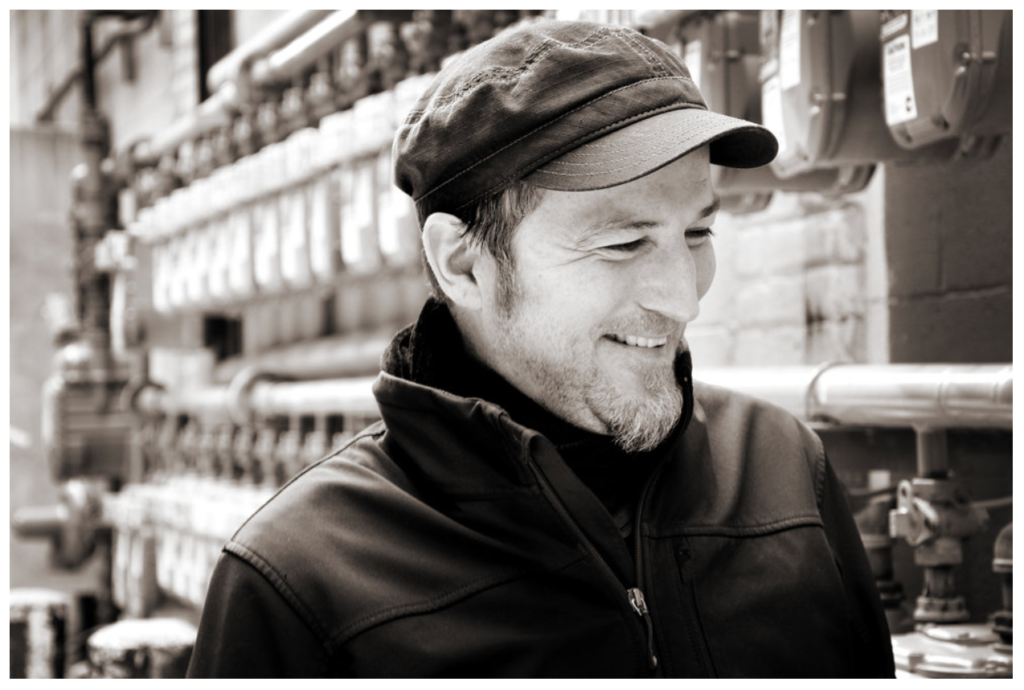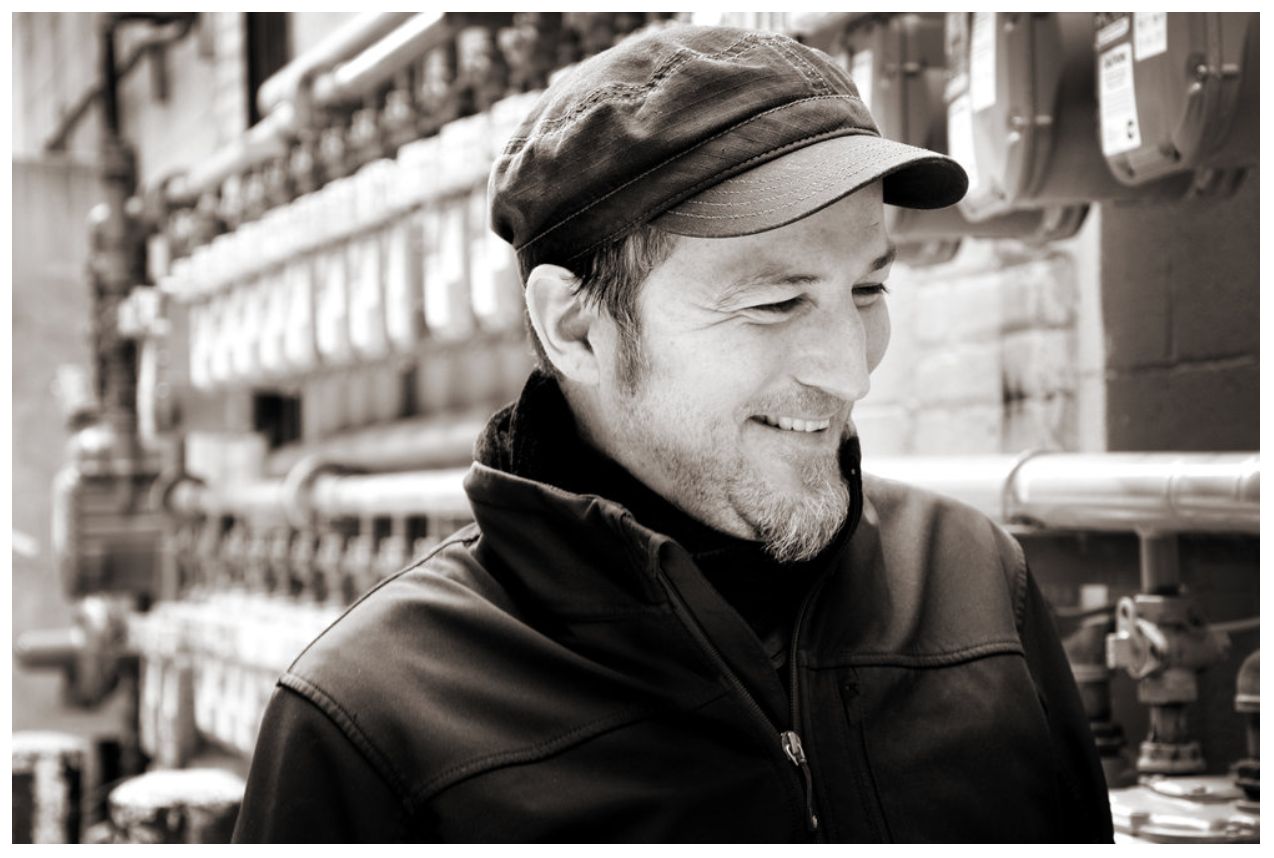An Interview with Peter Mulvey: Tell About It
I’ve only seen Peter Mulvey live once. He was part of a fundraiser for the ACLU here in Boston, organized by Ry Cavanagh and Alastair Moock a couple of years ago. Peter played two songs–his brilliant and beautiful “Take Down Your Flag,” and a cover of Jeffrey Martin’s incredible song, “Just Like Me.” Peter was able to bring everyone in that room a little closer, with a unique combination of warmth, humor, and poignant reflection. Peter’s no stranger to Boston, having once made this city his homebase and returning annually for the Lamplighter Sessions at Passim. On Sunday, he plays The Sinclair, in support of his stunning new album, There Is Another World. The record was produced by Todd Sickafoose, and you will be rewarded by repeated listening. There are so many small sounds and textures on the record, but it’s never overbearing or inauthentic. Peter’s lyrics are restrained in the best possible way; while each song feels deeply personal, there is plenty of room for the listener to bring their own experience to the songs. It was great to chat with Peter about the new record, staying open, and trusting art.

RLR: Some of this album is very spare, some of it is quite lush, with lots going on in terms of instrumentation and layered sounds; there’s just so much variety on this album. How did you think about that process of determining what a song was asking for?
PM: Most of the songs on this record came in a flood. I wrote two of them the night before we went into the studio; I was just still flooding. Todd Sickafoose and I recorded my parts first, and that really just took a day and a quarter, and I was done. I recorded about twenty different songs, I believe.
So then, it was all down to my trusting Todd, and Todd trusting this amazing cadre of avant garde improvisers he’d assembled, because that’s the crowd he runs with.
All these players are monsters. Idit Shner is a great composer and improviser. Eric Heywood is an amazingly deep musician; Jenny Shineman is tremendously creative. So it was really about turning them loose.
RLR: In terms of trust, as you’re done in just over a day and you’re seeing these songs evolve, what does that conversation look like between you and Todd and the other players?
PM: Well, it’s really to do with everyone trying to be open. You also have to pick a decider, and I was very happy to put that in Todd’s hands. He’s a great orchestrator; I mean, right now, he’s in New York City doing the orchestration for “Hadestown.” He can keep fourteen things in his mind at once. Like you look at that tune, “False Indigo,” we really pulled out all the stops on. One of the sounds there is a Blind Willie Johnson tune slowed down and, I think, played backwards; there’s the sound of a canoe, a ringing bell–there is a ton of stuff, and I trusted him to create a landscape. The whole lyric of that three-minute song is just three lines. (“Right as rain and right you are, / I’ll be wrong this one last time / Beware the role of a lifetime.”) So Todd had this marvelous sense of leaving space when there was a lot of information and filling space when there wasn’t a lot of information.
RLR: That’s a cool way to think about it. The album title is included in the song “All Saint’s Day:” (“There is another world, but it is in this one.”) The song evokes a sense of openness and attention that feels like a thread on the record. What does it look like for you to think about staying open and what gets in the way?
PM: What you’re talking about is trying to maintain a poetic approach. I don’t consider myself a poet, but this record is littered with quotes from poets and references to poetry. I read a ton of poetry and I think often of Mary Oliver’s three-step instruction: 1) pay attention, 2) be amazed, 3) tell about it.
The principal thing that gets in the way is the thinking mind. One of the best little verses I’ve ever heard, Chuck Prophet, on one of his songs, says: “I saw a dragon once coming out of the Broadway tunnel. / I picked my camera up, and I put my camera down.” That’s the ultimate way to say: just stop. Don’t name what you see, see it first. That’s the approach with this record. I’m not a poet, but I shoot for a poetic approach. I know a lot of great players…I’m a pretty good player, but what I prioritize is to play with the poetic approach, which is to try to say more with less and to try to be open and attentive.
PM: That’s what I am after. At the time I was writing this stuff, I was in the middle of yet another life change. All lives have several upheavals, where you don’t know what your direction is going to be. And I think that’s when the cultivation of openness really comes in handy. I think of the old Anton Chekhov quote: “Any fool can handle a crisis, it’s the day to day living that gets you down.” And, you know, in the day to day living, you’ve got to cultivate an openness to the experience of boredom; an openness to simply doing the dishes; an openness to being annoyed about doing your taxes. That’s when the work happens, so that when you’re suddenly going, “Oh my God, where do I go next in my life, and how do I go on?” your reflex, at least, is to sit still.
RLR: In terms of lyrics, it feels like there’s a real attention to the lyricism of the everyday – like the places in Ireland on “Beckett Was A Bird of Prey.”
PM: Right, and that tune is an elegy. I’m literally talking about a real good friend of mine, who got killed by a blood disease that he carried with him, which is a wretched topic from one angle, but if you remain open, when you lose a friend, you do get to savor the whole ride. Life becomes richer.
There’s this thing–I just heard this the other day–poignance is a sensation that grows more and more vivid in a life. I think I’ve been an old man since I was a kid; I felt a sense of poignance when I was eight. I was one of those hypersensitive, hyper-serious eight year-olds who would say, “Isn’t it strange, we’ll never go through the fifth grade again.”
RLR: That’s amazing. You mentioned this songs before, “Nickel and Dime,” and I really love it, but I can imagine it takes a certain amount of confidence to put a song that clocks in at nineteen seconds on an album.
PM: I’ve gotten way into short songs. One of the tunes is one minute; another tune is a minute and a half. And I’ve ended the last several records with a sort of epilogue, one-minute thing.
I think the confidence is something I’ve developed over time to trust art to take the shape it’s going to take. But I couldn’t do it without the audience. This is my eighteenth record and there are still people who are ready to check out the next thing I’m going to do. So I’m really grateful to the audience that’s allowed me to develop that confidence.
Check out Peter’s latest record There Is Another World and get out to The Sinclair on Sunday. It’ll be special.

